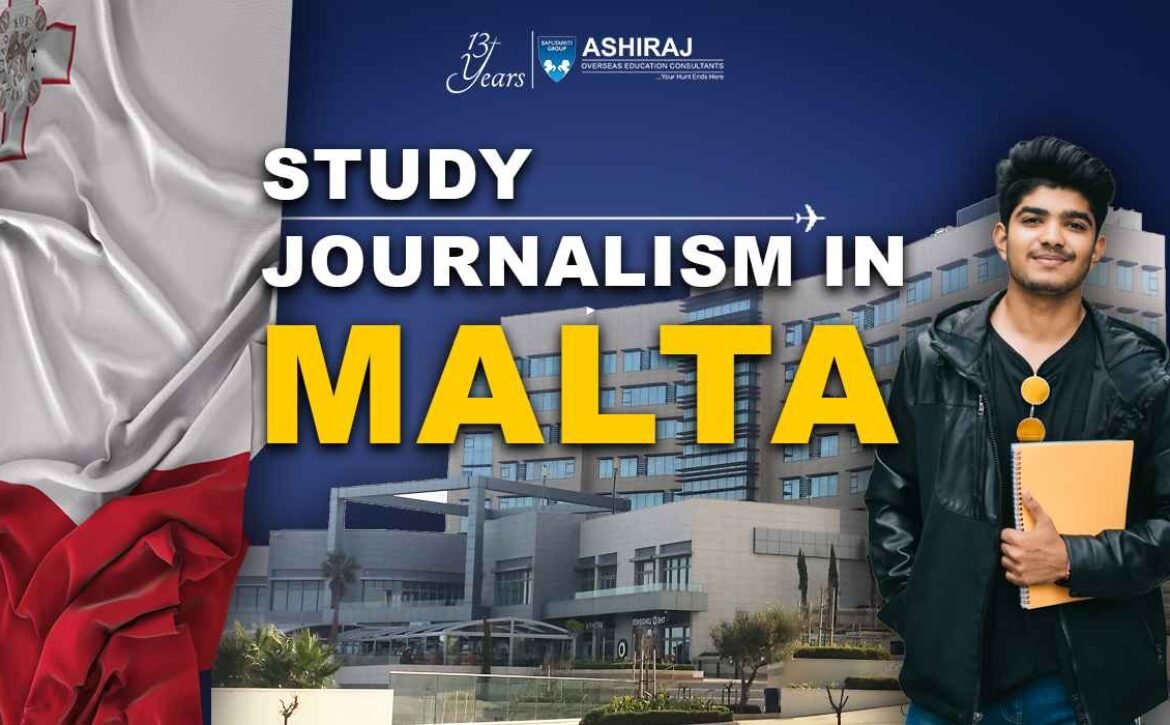
Journalism in Malta
Malta, a small island nation nestled in the heart of the Mediterranean, boasts a rich tapestry of journalism deeply intertwined with its historical, cultural, and political landscape. Journalism in Malta is a vibrant force, playing a crucial role in shaping public discourse and holding power to account. With a diverse array of media outlets ranging from newspapers to online platforms, Maltese journalism navigates through the complexities of a multi-faceted society, tackling issues ranging from governance and corruption to social justice and cultural preservation.
In recent years, the spotlight on Malta’s journalism has intensified, particularly in the aftermath of the assassination of investigative journalist Daphne Caruana Galizia in 2017. This tragic event not only shook the nation but also underscored the challenges and risks faced by journalists in Malta. Despite these obstacles, Malta’s journalistic community remains resilient, committed to upholding the principles of free speech, transparency, and accountability. As the nation grapples with evolving societal and political dynamics, journalism in Malta continues to evolve, reflecting the aspirations and struggles of its people.
Why to Study Journalism in Malta?
- Rich Cultural Landscape: Malta’s journalism benefits from its unique cultural heritage, providing students with opportunities to explore diverse narratives and perspectives.
- Practical Experience: Journalism programs in Malta often emphasize hands-on learning, allowing students to engage with real-world issues and hone their reporting skills in a dynamic environment.
- International Exposure: Situated at the crossroads of Europe, Africa, and the Middle East, Malta offers students a global outlook, facilitating networking and collaboration with journalists from around the world.
- Innovative Curriculum: Many journalism courses in Malta integrate digital media and multimedia storytelling, preparing students for the rapidly evolving landscape of modern journalism.
- Accessible Faculty: With small class sizes and accessible faculty members, students receive personalized guidance and mentorship, fostering a supportive learning environment.
- Research Opportunities: Malta’s rich history and contemporary challenges provide ample opportunities for journalistic inquiry and investigation, allowing students to delve deep into topics of interest.
- Language Diversity: As a bilingual country with English and Maltese as official languages, studying journalism in Malta offers students the chance to develop proficiency in multiple languages, enhancing their communication skills and marketability.
Studying journalism in Malta not only equips students with the necessary skills and knowledge for a career in media but also immerses them in a vibrant and culturally rich environment, enriching their educational experience.
Top Universities to Study Journalism in Malta
University | QS World University Ranking 2023 | Type of University | Average Annual Fees | Programs Offered |
University of Malta | 601-650 | Public | €1,000 – €3,500 | Bachelor’s in Journalism, Master’s in Journalism, PhD in Media Studies |
Malta College of Arts, Science and Technology (MCAST) | Not ranked | Public | €800 – €2,000 | Diploma in Journalism, Higher National Diploma (HND) in Media and Communications |
Middlesex University Malta | Not ranked | Private | €8,000 – €11,000 | BA (Hons) Journalism and Media, MA Journalism and Media Communications |
American University of Malta | Not ranked | Private | €10,000 – €14,000 | BA in Journalism, MA in Journalism and Digital Media |
St. Martin’s Institute of Higher Education | Not ranked | Private | €6,000 – €9,000 | Diploma in Journalism and Media Studies, Diploma in Journalism and Communications |
Malta offers a range of educational institutions catering to students interested in pursuing journalism. The University of Malta, a public institution, stands out with its comprehensive programs at affordable fees. For those seeking practical training, the Malta College of Arts, Science and Technology (MCAST) provides diploma and HND options. Private universities like Middlesex University Malta, American University of Malta, and St. Martin’s Institute of Higher Education offer specialized journalism degrees with an emphasis on practical skills and industry relevance. Whether aspiring journalists aim for a solid foundation in traditional journalism or seek to explore digital media, Malta’s universities provide diverse opportunities to pursue their passion for journalism.
Course Curriculum for Journalism in Malta
- Comprehensive Core Modules: Journalism programs in Malta typically cover foundational topics such as media ethics, news writing, and media law, ensuring students grasp the fundamental principles of journalism.
- Multimedia Integration: Emphasizing the importance of digital media, courses often incorporate modules on multimedia storytelling, video production, and social media management, equipping students with versatile skills for the modern media landscape.
- Practical Training: Students engage in hands-on learning through internships, workshops, and projects, gaining real-world experience and building their portfolios under the guidance of industry professionals.
- Specialized Electives: Journalism programs offer a range of elective courses allowing students to tailor their studies to their interests, such as investigative journalism, photojournalism, or sports reporting, fostering expertise in specific areas.
- Guest Lectures and Industry Insights: Many programs invite guest speakers from the media industry to share their experiences and provide valuable insights into current trends and challenges, offering students a glimpse into the realities of journalism practice in Malta.
- Research and Analysis: Courses often include modules on research methodologies and data analysis, empowering students to conduct in-depth investigations and produce insightful, well-researched journalistic content.
- Ethics and Integrity: With a focus on upholding journalistic ethics and integrity, curricula emphasize the importance of accuracy, fairness, and accountability in reporting, instilling ethical values essential for responsible journalism practice in Malta.
Eligibility Criteria & Admission Requirements for MS in Journalism in Malta
- Language Proficiency: Applicants must demonstrate proficiency in English through standardized tests such as IELTS (International English Language Testing System) or TOEFL (Test of English as a Foreign Language). Typically, a minimum score of 6.5 for IELTS or 80 for TOEFL is required.
- Academic Qualifications: Prospective students need to submit academic certificates attesting to their completion of secondary education or equivalent qualifications. These certificates should meet the requirements set by the university or institution offering the journalism program.
- Standardized Tests: Some institutions may require applicants to submit scores from standardized tests like GRE (Graduate Record Examination) or GMAT (Graduate Management Admission Test), especially for graduate-level programs. Scores in the range of 300-320 for GRE or 550-650 for GMAT are commonly expected.
- Passport & Student Visa: International students must possess a valid passport and obtain a student visa to study in Malta. This involves providing necessary documentation, including proof of acceptance into a recognized journalism program, financial stability, and health insurance coverage.
- Work Experience: While not always mandatory, relevant work experience in journalism or media-related fields can enhance an applicant’s profile. Some programs may consider professional experience as a factor in the admissions process, particularly for postgraduate studies.
Standardized Test Scores (Table Format)
Test | Minimum Score |
IELTS | 6.5 |
TOEFL | 80 |
GRE | 300-320 |
GMAT | 550-650 |
Meeting these eligibility criteria ensures that aspiring journalists possess the necessary language proficiency, academic background, and potential to thrive in journalism programs in Malta, fostering a diverse and capable cohort of students in the field of Journalism in Malta.
Documents Required for Studying Journalism in Malta
- Passport: A valid passport is essential for international students applying to journalism programs in Malta, serving as proof of identity and nationality.
- Letters of Recommendation (LOR): Applicants typically need to provide two letters of recommendation from academic or professional references attesting to their suitability for the journalism program.
- Statement of Purpose (SOP): An SOP outlining the applicant’s academic and professional background, career goals, and reasons for choosing the specific journalism program in Malta is usually required.
- Curriculum Vitae (CV): A comprehensive CV detailing the applicant’s educational qualifications, work experience, relevant skills, and extracurricular activities is necessary for the application process.
- Official High School Transcripts: Transcripts reflecting the applicant’s academic performance in high school or equivalent qualifications are mandatory for undergraduate programs in journalism.
- Educational Certificates: Copies of educational certificates, including diplomas or degrees earned from previous institutions, must be submitted as part of the application.
- Work Experience Certificate: If applicable, a work experience certificate verifying the applicant’s professional experience in journalism or related fields may be required.
- Proof of Financial Resources: International students must demonstrate sufficient financial resources to cover tuition fees, living expenses, and other costs associated with studying journalism in Malta.
Ensuring the submission of these documents is essential for a smooth application process and increases the likelihood of securing admission to journalism programs in Malta, contributing to the advancement of Journalism in Malta.
Admission Process for Journalism in Malta
- Research Programs: Begin by researching journalism programs offered by universities or institutions in Malta, considering factors such as curriculum, faculty expertise, and facilities.
- Check Eligibility: Review the eligibility criteria for each program, including academic requirements, language proficiency tests (such as IELTS or TOEFL), and standardized test scores (such as GRE or GMAT for some programs).
- Gather Documents: Collect required documents, including passport, educational certificates, transcripts, letters of recommendation (LOR), statement of purpose (SOP), curriculum vitae (CV), work experience certificates (if applicable), and proof of financial resources.
- Submit Application: Complete the online application form for your chosen journalism program, ensuring all required fields are accurately filled and all supporting documents are uploaded.
- Pay Application Fees: Pay the application fees as per the instructions provided by the university or institution, ensuring timely submission to avoid any delays in processing.
- Await Admission Decision: After submitting your application, wait for the university or institution to review your documents and make an admission decision. This may take several weeks, so remain patient during this period.
- Acceptance and Visa Process: Upon receiving an offer of admission, accept the offer and proceed with the student visa application process, including fulfilling any additional requirements set by Maltese immigration authorities.
Navigating through these steps ensures a smooth admission process for aspiring journalists looking to pursue their studies in Malta, contributing to the thriving landscape of Journalism in Malta.
“Education is the most powerful weapon which you can use to change the world.”
Nelson Mandela
Cost of Journalism Course in Malta
- Tuition Fees: The cost of tuition for journalism programs in Malta varies depending on the university, program level, and whether the institution is public or private. On average, tuition fees range from €1,000 to €14,000 per year.
- Living Expenses: Students should budget for living expenses such as accommodation, food, transportation, and miscellaneous costs. Malta offers a range of accommodation options, with expenses typically ranging from €300 to €700 per month.
- Books and Supplies: Additional costs may include textbooks, stationery, and other study materials. Budgeting around €200 to €500 per academic year for books and supplies is advisable.
- Health Insurance: International students are required to have health insurance coverage during their stay in Malta. The cost of health insurance varies depending on the coverage and provider, averaging around €300 to €600 per year.
- Miscellaneous Expenses: Miscellaneous expenses such as visa fees, residence permit fees, and recreational activities should also be considered when budgeting for studying journalism in Malta.
Understanding the cost of studying journalism in Malta helps prospective students plan their finances effectively and make informed decisions about pursuing their education in Malta, contributing to the development of Journalism in Malta.
Scholarships for Journalism Courses in Malta
Scholarship Name | Amount | Application Deadline |
University of Malta Scholarships | Up to €5,000 | June 30 |
Malta Government Scholarships | Full tuition fees | April 15 |
Middlesex University Malta Scholarships | Up to €3,000 | May 15 |
American University of Malta Scholarships | Varies | March 31 |
Rotary Club of Malta Scholarships | Up to €2,500 | July 1 |
Scholarships play a crucial role in making journalism education accessible to students in Malta. The University of Malta offers scholarships of up to €5,000 to support students pursuing journalism degrees. The Malta Government Scholarship covers full tuition fees for eligible candidates and has an application deadline of April 15. Middlesex University Malta provides scholarships of up to €3,000, with an application deadline of May 15. The American University of Malta offers scholarships of varying amounts, with a deadline of March 31. Additionally, the Rotary Club of Malta provides scholarships of up to €2,500, with an application deadline of July 1. These scholarships provide financial assistance to aspiring journalists, fostering talent and promoting excellence in Journalism in Malta.
Career Opportunities After Journalism in Malta
Job Profile | Average Salary (EUR) |
Journalist | 20,000 – 30,000 |
News Reporter | 18,000 – 25,000 |
Editor | 25,000 – 35,000 |
Media Producer | 22,000 – 32,000 |
Communications Specialist | 24,000 – 34,000 |
After completing a journalism degree in Malta, graduates can explore various career opportunities in the field. A journalist typically earns an average salary ranging from €20,000 to €30,000 annually, depending on factors such as experience and employer. News reporters can expect to earn between €18,000 to €25,000 per year, while editors may earn salaries ranging from €25,000 to €35,000. Media producers, responsible for creating multimedia content, earn approximately €22,000 to €32,000 annually. Communications specialists, who manage public relations and corporate communications, can earn salaries ranging from €24,000 to €34,000. These career options offer diverse pathways for journalism graduates to apply their skills and contribute to the dynamic field of Journalism in Malta.
Frequently Asked Questions About Journalism in Malta
Entry requirements typically include academic qualifications, language proficiency tests (such as IELTS or TOEFL), and sometimes standardized test scores like GRE or GMAT.
Yes, various scholarships are available, including those offered by universities, the Maltese government, and organizations like the Rotary Club of Malta.
Tuition fees vary depending on the university and program level, but they generally range from €1,000 to €14,000 per year.
Graduates can pursue careers as journalists, news reporters, editors, media producers, communications specialists, and more.
International students can apply directly to universities or institutions offering journalism programs, following the specific application procedures outlined by each institution.
While work experience is not always mandatory, relevant experience in journalism or media-related fields can strengthen an applicant’s profile.
Journalism programs in Malta are primarily taught in English, although some institutions may offer courses in Maltese as well.
Required documents typically include academic certificates, transcripts, letters of recommendation, a statement of purpose, a curriculum vitae, and proof of financial resources.
Yes, many journalism programs in Malta offer opportunities for internships, allowing students to gain practical experience in the field.
The duration of journalism programs varies, but undergraduate degrees typically take three to four years to complete, while postgraduate programs may range from one to two years.




